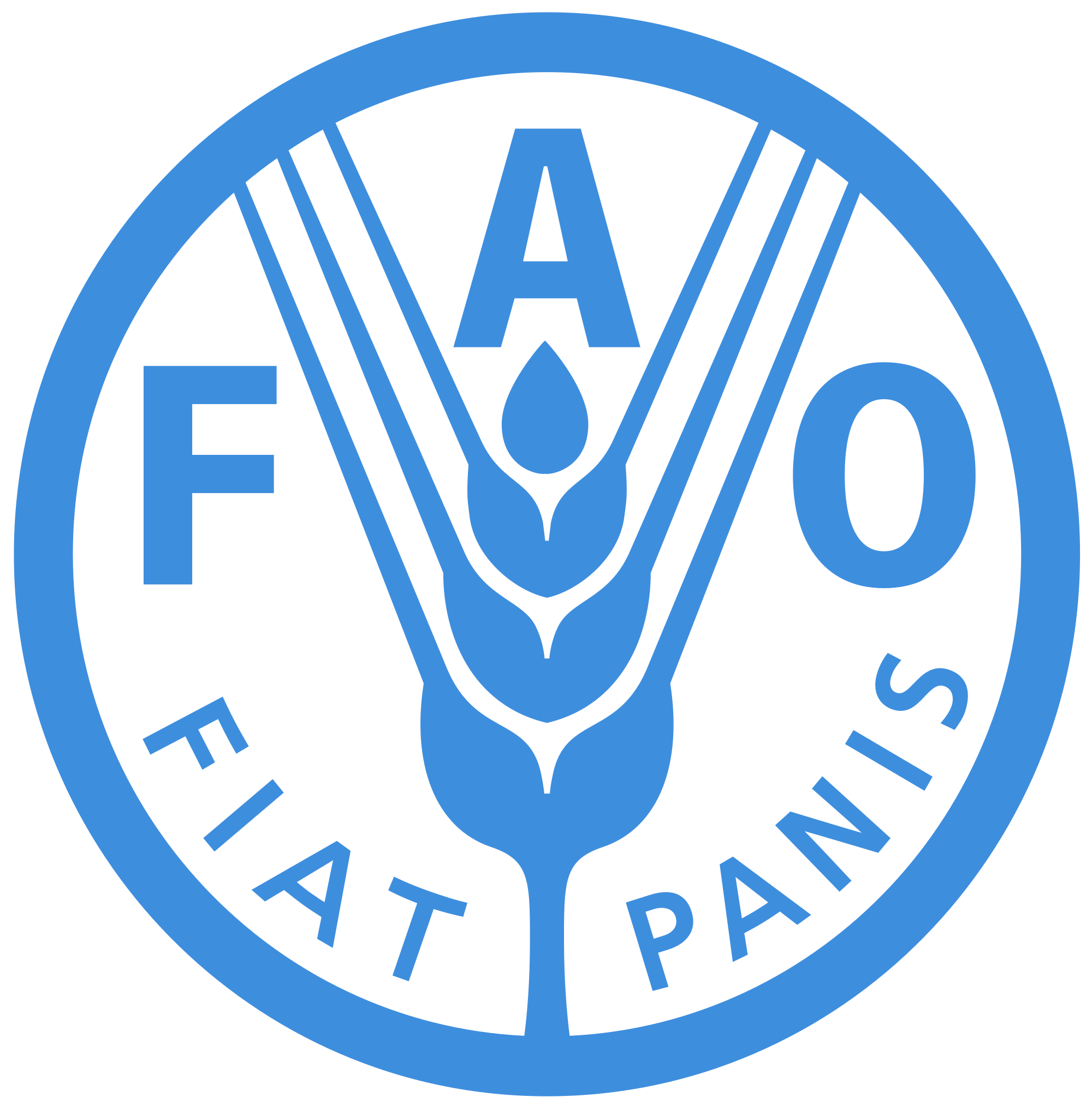The Organization’s office for Latin America and the Caribbean participated in various events where it presented initiatives that showcase success stories in climate change adaptation and mitigation.
The Regional Office for Latin America and the Caribbean of the Food and Agriculture Organization of the United Nations ended its participation in the United Nations Climate Change Conference (COP28) with a call to transform agrifood systems to achieve sustainable, resilient, and low-emission solutions to address climate change.
The FAO Regional Office’s participation in COP28, which took place between November 30 and December 12 in Dubai, United Arab Emirates, focused initially on the work carried out by the Platform for Climate Action in Agriculture in Latin America and the Caribbean (PLACA).
This year, the mechanism, comprised of 16 region countries, attracted more than 3,000 participants, offering courses, training, and workshops on Extension, Adaptation, and Mitigation of Climate Change. It also raised more than 200 low-cost technological solutions to promote climate action in agriculture.
Participants included Cesar Saboto, Minister of Agriculture, Forestry, Fisheries, Rural Transformation, Industry and Labor of St. Vincent and the Grenadines; Ana María Loboguerrero, Director of the Climate Action Research Area of the Bioversity CIAT Alliance and Senior Director of Climate Action of the CGIAR; Juan Carlos Mendoza, Director of Environment and Climate Change of IFAD; Sol Ortiz García, General Director of Policy, Foresight and Climate Change of the Secretariat of Agriculture and Rural Development in Mexico and currently President of the CGIAR; Juan Carlos Mendoza, Director of Environment and Climate Change at IFAD; Sol Ortiz Garcia, Director General of Policy, Prospecting and Climate Change at the Secretariat of Agriculture and Rural Development in Mexico and currently President of PLACA; and Kaveh Zahedi, Director of FAO’s Office of Climate Change, Biodiversity, and Environment.
“Strengthening regional climate action in the agricultural sector, the source of a wide range of solutions contributing to climate change adaptation and mitigation, is urgent. In this context, PLACA has been strengthened as a high-level articulation space to address agriculture’s contribution to the climate agenda,” explained María Mercedes Proaño, FAO Climate Finance Officer for Latin America and the Caribbean.
In addition, FAO, in collaboration with the Central American Integration System (SICA), addressed nature-based solutions in the dry corridor and arid zones of the SICA region.
In this context, those present shared strategies, good practices, and lessons learned to reduce vulnerability and strengthen resilience in these territories, highlighting, especially, the successful implementation of the Regional Initiative on Agriculture, Forestry and Other Land Uses, AFOLU 2040, whose central objective is to build regional agricultural resilience in SICA countries. This initiative aims to restore and conserve 10 million hectares of degraded land and ecosystems by 2030 and achieve carbon neutrality by 2040.
In terms of bioeconomy, the event “Bio-Amazonian Economy and Inclusive Rural Transformation” supported countries’ efforts to adapt to and mitigate climate change, ensuring the development of livelihoods in line with local knowledge and preferences, exploring opportunities and challenges to unlock the potential of the Amazon as a viable path for its inclusive and sustainable development, which exceeds Germany, Spain, France, Italy, Norway, and the United Kingdom in size.
With 237 million hectares of forest, this territory is vital to our planet, hosting 20% of fresh water and 10% of the world’s biodiversity and home to more than 50 million people, including 400 indigenous peoples, Afro-descendant communities, and farmers.
Finally, the event “Driving climate action with sustainable crops: how yerba mate, cocoa and coffee increase income and reduce emissions” highlighted the valuable work with indigenous communities of the “Poverty, Reforestation, Energy and Climate Change” (PROEZA) project, with the sacred plant yerba mate, and financing from the Green Climate Fund. The event showed how collaboration with indigenous communities can generate positive impacts in the fight against poverty and environmental protection.
A new paradigm
Food systems must consider sustainable, efficient, low-emission, and nutrient-rich production, as they are currently not sustainable enough, degrading, undernourishing, and producing in a limited way.
For this, it is necessary to create a new paradigm in efficiency and use of increasingly limited natural resources, less pollution in emissions, use of plastics and chemicals, restoring biodiversity and ecosystem services, and producing healthy food.
“In a changing and uncertain environment, the ability to adapt to production is vital, and this has to do not only with how and when it is produced but also with predicting as accurately as possible, facing different scenarios to prevent risks and manage environmental catastrophes,” explained Hivy Ortiz, FAO Sustainable Agriculture Officer for Latin America and the Caribbean.
“Biophysical elements and good agricultural practices must be taken into account, as well as social considerations such as social forecasting, and economic issues associated with investment in good technology for processing, catastrophic insurance for environmental and social recovery, among other elements,” added Ortiz.




